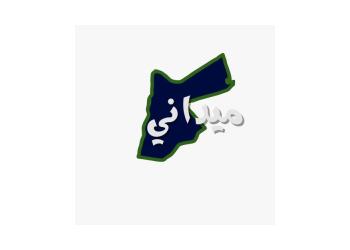Jordanian business man deceives a Russian investor

Case is causing friction between the two countries Special to AmmanNet/Radio al Balad Real Estate agent, Engineer Anwar Oweidy Abadi was surprised at the end of October 2018 to find a check with his name on it at the desk of a well-know Jordanian lawyer in Amman. The check was one of 28 checks issued on the checkbook of Samer Anis Mouasher. This check was drawn on the Ahli Bank for an amount very close to one million Jordanian Dinars. Oweidy says that he was shocked to see the check and he asked the lawyer: “why do you have a check in my name with this huge amount? I never received this amount from Samer nor did I ever see this check in my life.” Anwar Oweidy told “AmmanNet” that in fact he helped arrange for a sale of land in the village of Baha west of Amman in 2006 to a well-known businessman Samer Anis Mouasher “and for my services I received a commission of 132,000 JDs only.” Oweidy continued “I received two checks for my commission and they were drawn on another bank and I never received the 906,620 JD that is listed in the Ahli Bank check.” The Jordanian lawyer explained to Oweidy that his check was one of 28 checks copies of which were given to a person representing the Russian investor Evgeniy Novitskiy to document his claims of having bought lad with those checks. But Anwar Oweidy told the lawyer that he was the agent who organized the sale and he remembers very clearly how much was the land was sold to Samer Mouasher for. Oweidy scanned through the 28 checks which were mostly issued to members of the Abadi tribe among them some older women, and he told the lawyer that the amounts in those checks are wrong and have nothing to do with the reality. He said most have double the value that was paid from Samer Mouasher for the land. [gallery ids="309863,309862,309861,309860,309859,309858,309857,309856,309855,309881,309880,309879,309878,309877,309876,309875,309874,309873,309872,309871,309870,309869,309868,309867,309866,309865,309864"] How the story began? The story began in 2005 when the Russian engineer Yegini Novetsky launched the IPO for a mega Russian telecommunications company Systema which he headed since 1995. The IPO in London was the largest for any Russian company and it attracted $1.5 billion. In 2006 Novitskiy is introduced to a Jordanian man, Samer Anis Mouasher who described himself as being very close to the royal family in Jordan in order to gain the truth of Novitskiy. To prove his point, Mouasher organized meetings in the royal court and after gaining his trust, Mouasher convinced the Russian of a rare investment opportunity in real estate outside of the capital Amman. Novetsky as a result invested $20.5 million which he wired directly to Mouasher’s bank account to buy the land because Mousaher had convinced him that the area is likely to become a new city and therefore its value will more than double. The value of the land But when Novitskiy asked Samer Mouasher for proof of what he paid for the land, Mouasher supplied him with photocopies of 28 checks issued from two registered Jordanian banks signed by Samer. The total amount that is listed in those checks reaches $32 million. Mouasher told his Russian partner that he invested with his money over and above the $20.5 million sent, which amounts to nearly $12 million added in order to buy the 519 dunums in the area. Wedding in Zahran gardens In the summer of 2008, Novitskiy was invited to Amman to attend Samer’s wedding which was held in the royal gardens opposite Zahran palace. Samer used the occasion to introduce Novitskiy to princess, senators, minister and other high-ranking Jordanian officials. During the visit sought to ask for the value of the land had bought and was surprised to learn the big difference between the market value of the land and the amount stated in the 28 checks. Novitskiy also discovered during the visit that the land was still registered in Samer’s personal name and that the land was not transferred to Novitskiy as had been agreed. Issue of rights After repeated efforts to find a compromise between the market price and what was claimed by Samer Mouasher through the 28 checks, and with Samer failing to transfer the land, a case was filed against Mouasher demanding the return of the $20.5 million which had been transferred to Samer. A compromise was reached in 2010 based on Samer’s insistence of the cost of the land as had been listed in the 28 checks. The agreement called for Samer returning $5 million to Novitskiy out of $20.5 million and a transfer of 227 dunums (out of the overall 519) to a company owned by Novitskiy. Samer and his brother Maher kept the deeds to 292 dunums and the case ended that way. This is why Novitskiy was surprised when he learned from his Jordanian lawyer who had talked to Oweidy of the fact of the 28 exaggerated checks were not the real ones paid for the entire land. In other words, Novitskiy learned for the first time of the 28-check fraud early in 2019. As a result, a criminal case was filed against Samer Mouasher at the offices of Rami Tarawneh the Amman prosecutor general. [gallery ids="309884,309885,309886,309887,309888,309889"] AG investigates The Jordanian prosecutor general did a thorough investigation. He listened to witnesses and on January 5th 2019 he issues a travel ban against Samer based on allegations of swindling and credit abuse. The prosecutor general also wrote to Etihad Bank and Ahli Bank to inquire about the checks. The Ahli Bank responded on February 11th 2019 “after reviewing our records we found that the checks referred to were never submitted for cashing from the account of our client whose account was closed in 2010. Etihad Bank also responded to the AG in a letter on February 13th 2019 saying “after we reviewed the accounts of our client Samer Anis Mansour Mouasher, we found no reference to the checks that were sent in your request.” The prosecutor general of Amman also questioned all those who had a connection to the case including lawyers, real estate agents, land owners and the accused Samer Mouasher. The prosecutor general produced a six-page report that stated “those whose names listed in the checks never received their originals from the accused (Samer Mouasher) but that they did received different certified checks. The prosecutor general Rami Tarawneh continues: “it has been proven that the accused used these checks to give the impression to the accuser (Novitskiy) that he had spent the amount of money which differs from the reality as the real price paid was much less than what appeared in the photocopies of the checks.” But despite the fact that the crime of fraud and theft by means of deception four times was established, the surprise was the change in direction of the prosecutor general by dropping the criminal charges against the accused because of the statute of limitations. This decision was taken despite the fact that the complaint was made within three months of the accused knowing that he was the victim of the crime. [gallery ids="309890,309891,309892,309893,309894"] Status of limitations Legal experts differ on how to calculate the time related to the statue of limitations. Article 339 of the Criminal Court Procedures set the statue of limitations in criminal cases such as fraud and theft be means of deception (which is considered a misdemeanor) at three years. But another law states that the clock begins with the knowledge of the victim of the crime against him. As the lawyer for the Russian investor stated in an appeal about the issue stated “in covert crimes which by nature the criminal tries to keep it a secret and the victim is totally in the dark of being the victim of deception against him, the legislatures provided in article 3/2/a of the Complaints Procedures that the cases is no longer valid after three months of the knowledge of the crime being committed.” Jordanian lawyers of the Russian investor feel that it is illogical for punishing the victim for not knowing that a crime had been committed and that it is not usual for the investigation to have ensued for over three months which included listening to witnesses, the cost of the travel of lawyers of the Russian investor, and the letters to the banks that proved the existence of a crime, if the intention all along was to keep the complaint on the basis of the statute of limitations. Kremlin intervention The decision of the Amman Prosecutor General didn’t end the case. The Kremlin intervened by way of the Russian ambassador to Jordan Gleb Desiatnikov who sent a letter on April 30th 2019 to the Jordanian foreign minister Ayman Safadi calling on him to “remove all that doesn’t contribute to rise of relations between Jordan and the Russian Federation.” The ambassador ended his three-page letter written in Arabic by hoping that “a just and objective resolution to this case is carried out in accordance to the laws of the friendly Hashemite Kingdom of Jordan.” Jumana Ghnaimat the spokesperson of the Jordanian government chose not to comment on the case and said that the issue is in the hands of the Foreign Ministry, on the other hand Sufian Quddah the spokesman of the Jordanian Ministry of Foreign Affairs and Expatriates told ‘AmmanNet’ that “the natural place to resolve such cases is the law.” New Legal efforts using the Economic Crimes Law AmmanNet has learned from legal sources that the Russia investor plans to file a new criminal case in the coming days against Samer Mouasher by requesting the application of the Economic Criminal Law number 11 for the year 1993. Article 10 of that law states clearly that “the statue of limitations doesn’t apply to crimes that are committed in violation of this law and the violations based in it.” Legal experts believe that cases of fraud by the use of fake checks against a major foreign investor are fully fledged crimes because the actions of Mouasher have caused major damage to Jordan’s economic place in the eyes of the Russian businesspeople. They feel that the harm caused by this crime towards Jordan’s investment setting and the general investment because Mousaher abused his relations with senior Jordanian officials who have nothing to do with Mousaher to gain the trust of Novitskiy and deceive him to carry out the fraud against him. Jordanian banking reputation Legal experts insist that the term “instrument” that appears in the Economic Crime Law article three states that “an economic crime is a crime that causes harm to the central economy of the Kingdom or in the trust in the national economy, national currency, stocks, instruments and traded securities.” In other words, the use of checks issued by Jordanian banks and are regulated by the Central Bank make it clear that persons can’t use these checks in a fraudulent way to fraud people.” A press release issued by the Russian investor Novitskiy a copy of which reached AmmanNet states that if all legal avenues in Jordan are closed, he will have no choice but to “approach international legal bodies to regain their rights which have caused unintentional harm to the investment reputation of the Kingdom of Jordan and its economic standing. All effort to contact Samer Mouasher failed to get his reaction. These contacts seeking his right of response have been documented in WhatsApp application. Before publication, Hussam Mouasher, Samer’s lawyer contacted AmmanNet and sought to stop publication. When asked if he has a comment, he refused saying that he accepts the recommendation of the prosecutor general to drop all criminal charges against his client. Note: All documents related documents are kept at the offices of AmmanNet/Radio al Balad. Original investigation by text













































